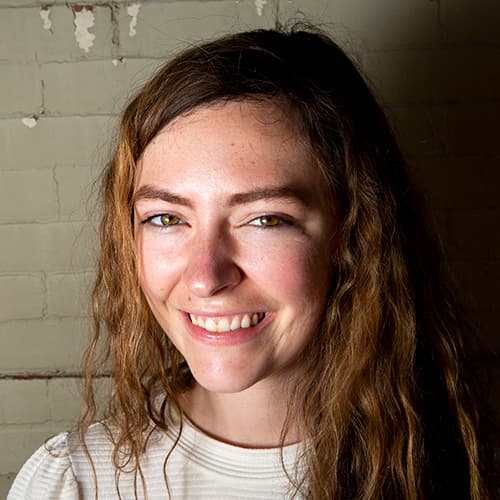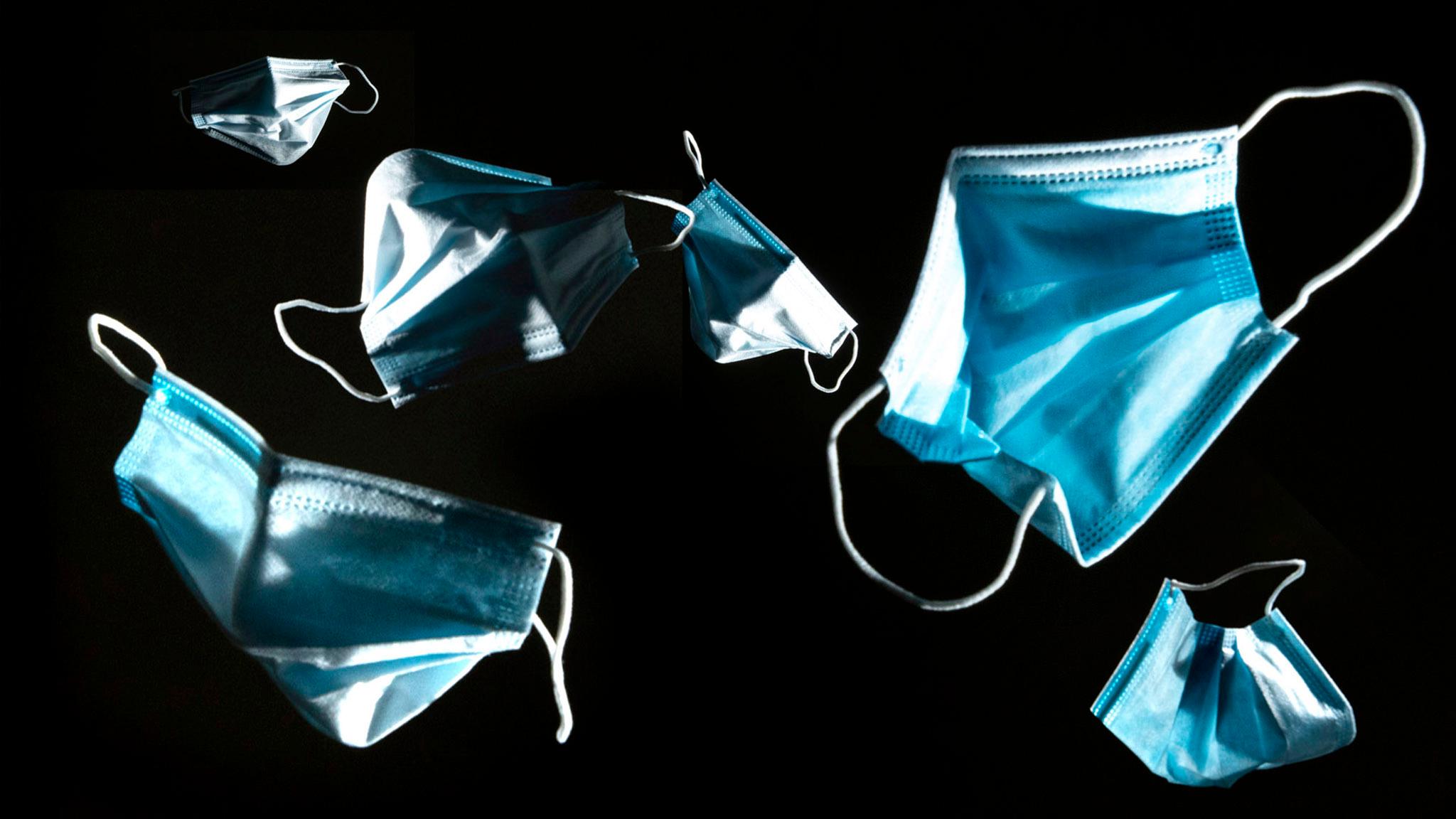On Monday morning, just four days after Denver's mask order lifted, I grabbed coffee on the way in to work. This particular coffee shop had signs posted up front indicating that patrons were still required to wear masks, as well as markers on the floor to keep everyone distanced. All the customers I saw complied with the rules, and the baristas wore masks and gloves themselves.
As I waited for my drink, a young couple entered the store. Neither was wearing a mask. One barista called out to them from behind the counter, asking them to please put on face coverings. The couple exchanged a look.
"But the mask order," the woman said to the barista, who calmly explained that as a private business, they are allowed to continue to require face coverings in the shop. The woman reluctantly put hers on, and the man reluctantly stepped outside.
Last week, Denver lifted its mask mandate for anyone who's been vaccinated, leaving face covering requirements up to individual businesses rather than government.
It's a big change, and one that's sparked a lot of debate and confusion. We wanted to hear from Denverites -- and particularly from those who might be the most affected by the order, like parents of young children and service-industry workers -- how they felt about it. We took to social media, Reddit and our newsletter to ask: Will you still wear a mask?
We received a LOT of responses. Hundreds of them. Some said they're happy about the change. A few vaccinated Denverites said they've taken COVID-19 seriously throughout the pandemic but have enough confidence in the vaccine that they're ready to drop the mask. Some said they'd comply with businesses that require masks but would otherwise do without. Still others said they wouldn't patronize businesses that require masks.
People also gave reasons that were rooted in, well, social graces. Some said they'd continue to wear masks to make those around them feel comfortable. Some said they feel naked without a mask, and that it's a habit that will be hard to unlearn. Some simply like the anonymity they provide. One Reddit user said, "As a female, I haven't been told to smile in over a year while walking down the street, and I intend to keep that going as long as possible." Another user said masks "hide my disdain for humanity."
Before we get into what you told us, here's some science behind the vaccines and the reason you might not feel comfortable wearing a mask even if you believe, as the vast majority of the scientific community does, that vaccines are highly effective at preventing COVID-10.
The CDC said people who've been fully vaccinated and who've waited two weeks after their final dose can safely go without a mask, since the vaccines are effective at preventing COVID-19 infections and serious illness. Studies show that masks can be effective at slowing the spread of COVID to others who haven't yet been vaccinated.
Judith Fox directs the international disaster psychology, trauma and global mental health program at the University of Denver. She's also a professor of psychology. She said people need to have a sense of safety and security in the world. For many, the pandemic threatened that feeling of security.
"When disaster hits, our basic assumptions about our control and safety in the world are really turned upside down," she said. "I think COVID has clearly burst this bubble of invulnerability for all of us, if we had that feeling to begin with."
She said maintaining safety during the pandemic has required us to respond to a bunch of unknowns: about how to remain safe, who to listen to, what to do and what not to do.
"So I think the abrupt shifts in guidelines are very unsettling to people in determining what feels safe in which situations," she said.
At the start of the pandemic, we quickly learned to equate masks with some semblance of safety. Suddenly, we are being told they're optional.
"Changing from what we've learned to do that increases our felt security, like wearing masks, can be extremely anxiety provoking," Fox said. "People have clung on to that as the thing to do. So giving up something that's helped us feel more control in this situation, and safe, can be pretty scary."
Laurie Ivey is an associate professor at DU's Graduate School of Professional Psychology. Before that, she worked for 18 years as a health psychologist in primary care.
The pandemic isn't over yet, but Ivey said that when it does end and the threat is removed, it might still take time for people to get comfortable going back to "normal" behaviors, like going to a grocery store unmasked.
Ivey said it's important for COVID-anxious people to take small steps. There may be people who never stop wearing masks, and she said that's OK. Masks can help people feel better and safer and help protect them against other illnesses.
Still, Ivey said that people need social interaction and exercise. Changing one's behavior in accordance with a changed situation -- like the end of the pandemic, whenever that happens -- can help improve mental health.
"How do we get back to a pre pandemic normal?" she said. "We've got this new normal that we've created that's been in place for a really long time. And, in some ways, we've got to peel those layers back to get back to feeling like we can live more freely."
Remi Kalir, a professor at the University of Colorado Denver, told us he isn't rushing into "normal" anytime soon.
He said he's now comfortable attending small gatherings with people he trusts and knows are vaccinated. But he isn't attending larger social gatherings quite yet.
"Most of the past year in the pandemic has been spent in a very small social bubble," he said. "And so the current changes have been a little disorienting."
Kalir said he doesn't see his family's behavior and day-to-day rhythms changing much in response to the new policies.
"My initial thought was, wow, we've spent 15 months under lockdown. And you can't just flip a switch like this. People's lives are a little bit more complex," he said. "I think it's too fast. I don't think that the state level data is encouraging. And I think that much more can be done particularly to protect more vulnerable populations."
That includes his own child, a toddler who is too young to qualify for the vaccine, which are currently approved for children 12 years and older.
"If you're responsible for taking care of a kid, mitigating risk is important," Kalir said. "Mask wearing and social distancing and other factors are important to consider if you're responsible for the livelihood of a small child. And my partner and I take that very seriously."
He said it's important to remember that individual actions have communal consequences.
"I think it's important to think beyond oneself in these circumstances," Kalir said. "As a parent, it's pretty easy to do that. And I hope that other folks keep the wellbeing of their neighbors and their fellow citizens in mind."
Alex Trebino said she followed public health protocols but still ended up with a mild case of COVID-19 in April of last year.
Despite being a fit and healthy 27 year old, she ended up being a COVID long hauler.
"It's a myriad of things, from insomnia, to loss of sense of taste and smell, to brain fog and everything in between," she said. "Just physical exhaustion."
Until recently she used supplemental oxygen at home before transitioning into pulmonary rehab to help retrain her body to breathe normally. Now that the mask order has lifted, she's worried others will be in greater danger of getting COVID, especially communities of color and lower income communities that have lower vaccination rates, or immunocompromised individuals.
"I believe as a society, we should be making decisions based on our most vulnerable and not least, or have a more nuanced approach that is more inclusive," she said.
She also worries that the research on long haul COVID cases is still new. She said a lot of long haulers started with mild cases as she did. She worries that while the vaccine protects against the most severe COVID cases, mild cases can still break through the vaccine.
"So my concern and my question, really, is those breakthrough cases from vaccination, can they lead to long-haul COVID?" she said. "And if so, what is the proportion?"
Trebino recently started working as a beertender at a local brewery. So far, she said, people have been good about wearing masks, and the company will continue to require them.
"The mask mandate is now on the businesses, and I think it's really complicated, because the business wants to keep people safe. But also, they're businesses, and everyone has to make money to survive," she said.
Emilia Volz said her mask is like a "security blanket."
She's been vaccinated since mid-January but still feels like she needs the protection of her mask.
"For me, it just feels anxiety-inducing to not have it," she said. "I like that my face is covered. I can hide my expression if I want to, or if I get upset and turn red, no one can see it. Or, like, a pimple."
Plus, she hasn't gotten sick since adopting mask-wearing last year, not even a cold.
She worries that if she stopped wearing a mask, people might think she isn't vaccinated. And she wants to be respectful of people who can't get vaccinated. She said staff at the transitional housing facility she runs will continue to wear masks because the clients they work with are particularly vulnerable.
"I hope people are kind and respectful of those spaces where we still need to protect our neighbors," she said.
Josh Baranauskas is immunocompromised. He said before getting vaccinated, he really only left his home to exercise. He's been branching out more since he got the shot, going out to restaurants and seeing more people.
But he said he recently spoke to his nephrologist, who said she doesn't know how effective the vaccine will be for him. Early research shows some immunocompromised people who got the mRNA vaccines aren't producing nearly enough antibodies to be immune against the virus.
"In a way, we're kind of the forgotten people," Baranauskas said.
He acknowledged that the science isn't complete. But if that's the case, he wonders why Denver would jump to remove the mask mandate.
He said he's seen a lot of social media posts saying that immunocompromised people can "just stay home" if they're worried about the virus. He said his unemployment was recently cut off, so staying home is not an option for him.
"You're forcing people back into the workforce, and you're opening up all of these people who are compromised to getting it," he said. "All the work we've done the year and a half or so we've spent being locked up... is it all going to go to waste? "
We originally misreported Josh's last name. It's Baranauskas. We regret the error.














